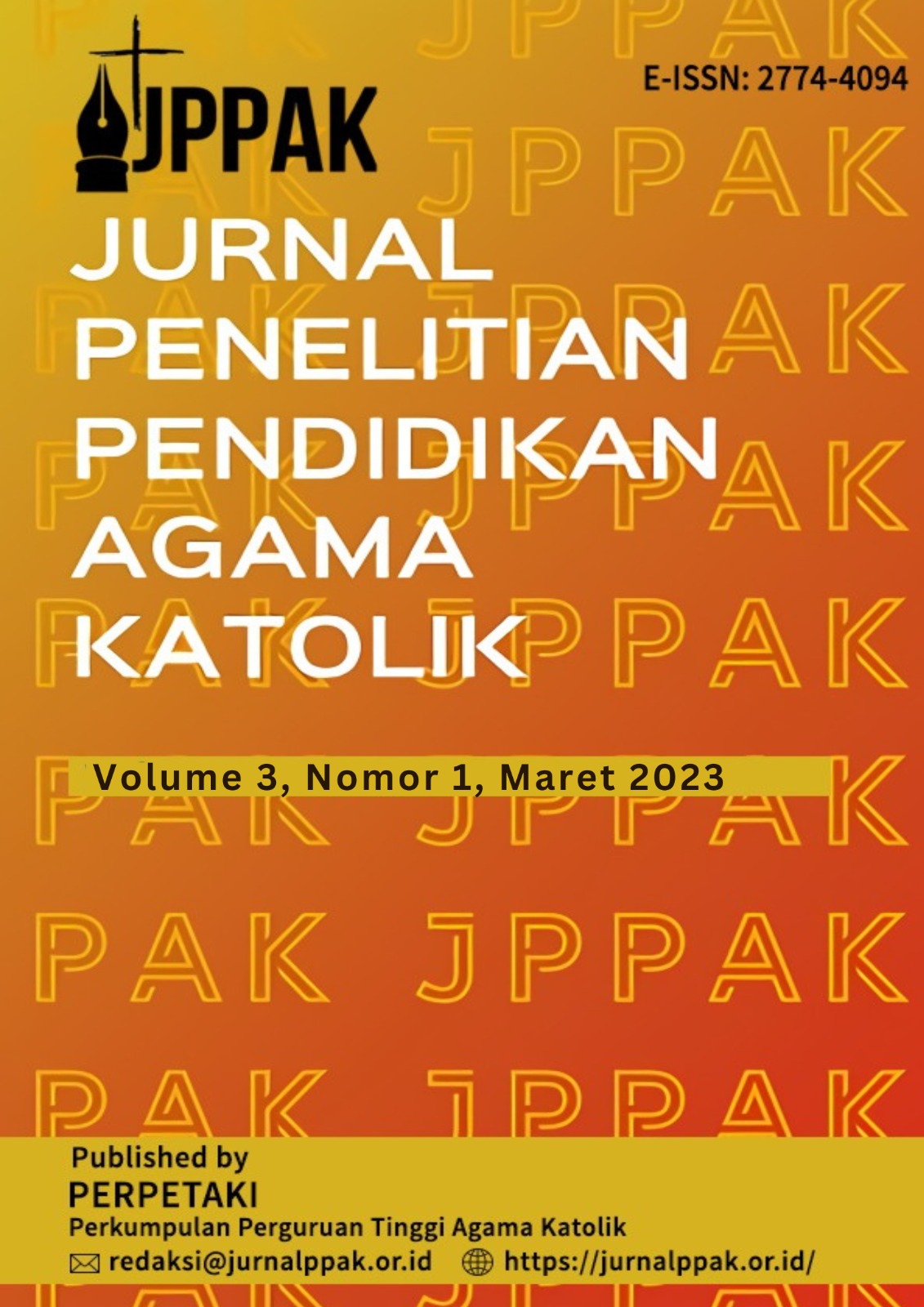Relationship between Student Participation in School Activities and Prosocial Behavior in Catholic High School Students
DOI:
https://doi.org/10.52110/jppak.v3i1.67Keywords:
participation, prosocial behavior, students at chatolic schoolAbstract
This study aims to determine the relationship between student participation and prosocial behaviour in Catholic Senior High School students. The research method used is quantitative, with a correlational approach between variables. The subjects of this study were Catholic High School students in the Episcopal Vicariate of Kedu area, namely SMA Tarakanita Magelang, SMA Pangudi Luhur Van Lith, and SMK Pangudi Luhur Muntilan with a total of 295 respondents. The measurement tools used are the Student Participation Scale and the adaptation of the Prosocial Behaviour Scale. The analysis technique used is the productmoment correlation technique from Spearman's rho. The results of this study indicate that (a) there is a negative and significant relationship between participation and the public dimension with a coefficient value of -0.180 (p=0.000<0.05), (b) there is a positive and significant relationship between participation and the anonymous dimension of 0.240, emotional of 0.181, and compliant with a coefficient of 0.240 with (p=0.000<0.05). Besides that, there are two relationships between participation and dire and altruism dimensions which cannot be known because the linearity requirement is not fulfilled.
Downloads
##submission.downloads##
Submitted
Accepted
Published
How to Cite
Issue
Section
License
Copyright (c) 2023 Theresia Galuh, Romaria Magdalena Naibaho, Sesilia Adhi Wahyu Utami

This work is licensed under a Creative Commons Attribution-ShareAlike 4.0 International License.
Copyright Notice and Permissions
Jurnal Penelitian Pendidikan Agama Katolik offers immediate open access to all its content on the principle to make researches freely available to the public, especially to the scholars, to support greater global exchanges of knowledge. This journal encourages all scholarly authors to allow their research openly available, free access and without time restrictions.
All articles published Open Access will be immediately and permanently free for everyone to read and download. Under the CC BY-SA 4.0 license, authors retain ownership of the copyright for their article, however authors grant others permission to use the content of publications in Jurnal Penelitian Pendidikan Agama Katolik (JPPAK) in whole or in part provided that the original work is properly cited. Users (redistributors) of Jurnal Penelitian Pendidikan Agama Katolik (JPPAK) are required to cite the original source by including at least: the full title of the article, the author's or authors' full name(s), JPPAK as the initial source of publication, year of publication and volume number using a propriate citing method.
Copyright encompasses exclusive rights to reproduce and deliver the article in all form and media, including reprints, photographs, microfilms and any other similar reproductions, as well as translations. The reproduction of any part of this journal, its storage in databases and its transmission by any form or media, such as electronic, electrostatic and mechanical copies, photocopies, recordings, magnetic media is prohibited without consent of Jurnal Penelitian Pendidikan Agama Katolik (JPPAK).
Jurnal Penelitian Pendidikan Agama Katolik (JPPAK) is licensed under a Creative Commons Attribution Share-Alike 4.0 International. (CC BY-SA 4.0)
Authors who publish with Jurnal Penelitian Pendidikan Agama Katolik (JPPAK) agree to the following terms:
- Authors retain copyright and grant the journal right of first publication with the work simultaneously licensed under a Creative Commons Attribution Share-Alike 4.0 International (CC BY-SA 4.0) license that allows others to share the work with an acknowledgement of the work's authorship and initial publication in this journal.
- Authors are able to enter into separate, additional contractual arrangements for the non-exclusive distribution of the journal's published version of the work (e.g., post it to an institutional repository or publish it in a book), with an acknowledgement of its initial publication in this journal.
- Authors are permitted and encouraged to post their work online (e.g., in institutional repositories or on their website) after the publication on JPPAK, as long as it not published on other OJS for it will be treated as plagiarism by plagiarism checker apps. It can lead to productive exchanges, as well as earlier and greater citation of published work (See The Effect of Open Access).












